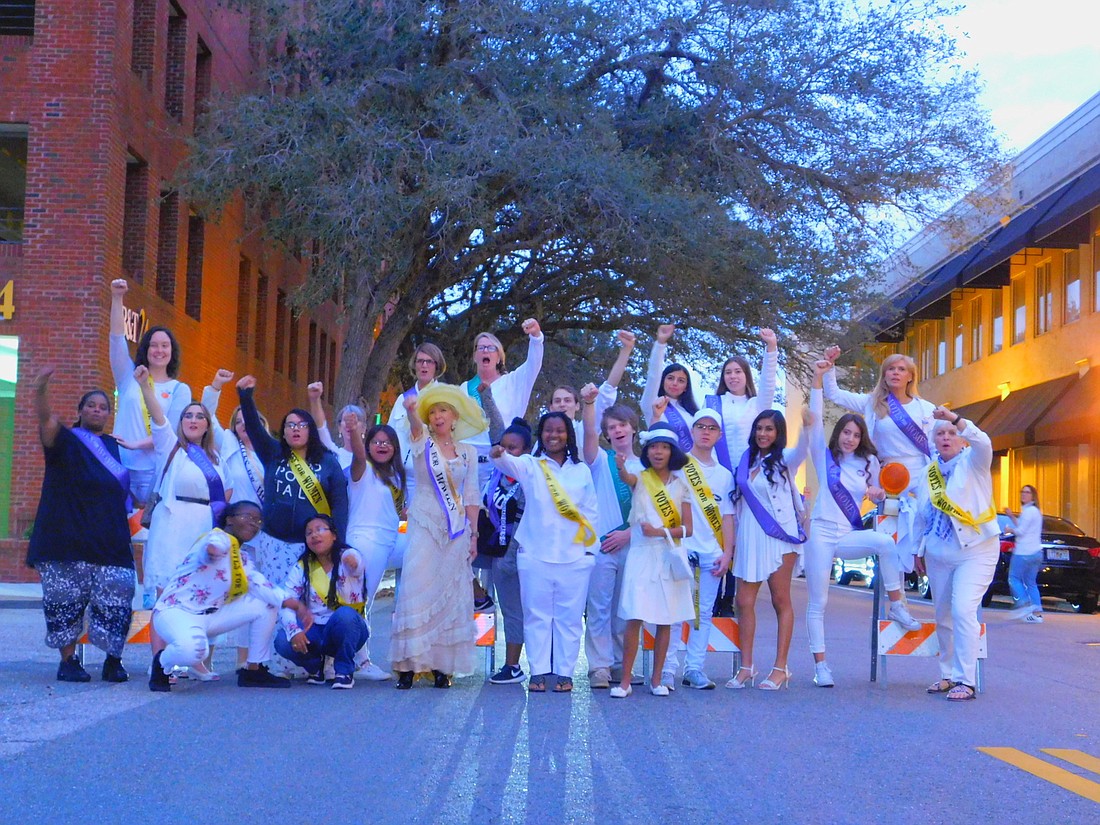- December 19, 2025
-
-
Loading

Loading

“You’ve come a long way, baby.”
Back in 1968, that was the slogan of an ad campaign. It was targeted at women to make them feel empowered — to buy cigarettes. It was a wildly successful campaign.
We’ve all come a long way since then. There’s our whole attitude toward smoking, and it’s hard to imagine calling anyone “baby” with a straight face these days.
But let’s not be too hard on our ancient forefathers. When that ad came out, it had not yet been 50 years since women had attained the right to vote.
The time has doubled since then, and it still isn’t a long time. For the next eight months, a lot of people around here will be thinking, talking and singing about it and using every other form of expression to commemorate that milestone in women’s rights.
It’s all part of the Suffragist Project, a collaborative initiative among 55 organizations (as of Dec. 19) to celebrate 100 years of voting rights for women. At least 80 cultural, artistic and educational events have been planned, which lead up to The Dangerous Ladies Festival on Aug. 14-16. The event is sponsored by Florida Studio Theatre and The National Endowment for the Arts and features four news plays commissioned for the event. The following weekend a commemoration at FST’s Gompertz Theatre marks the centennial of the passage of the 19th amendment.
Between now and then, there will be readings, lectures, art exhibits, concerts, dance programs, films and other events all with women’s suffrage as their literal or interpretive theme.
“With over 80 events, it’s important to remember that not one of them will give us the full picture of this brave moment,” says Kate Alexander, FST associate director at large and director of the Suffragist Project. “But like a kaleidoscope, we will turn the lens, looking at these little fragments of light and understanding. And by Aug. 20, I hope that we all have deepened our understanding, our appreciation, for what we are honoring and also some of the betrayals of the movement. And in that complexity, in that truth, we will all gain as we march toward the future, not in an illusion of celebration but in a deep honoring of the events that will give us the full picture of this brave movement.”
FST is something of a nexus for the far-flung project, and the theater hosted a soft opening for Suffragist Project event Dec. 2 in its Keating Theatre. FST Managing Director Rebecca Hopkins says the theater was an appropriate place for the kickoff event because it was originally the home of the Sarasota Women’s Club when it was built in 1914, six years before the 19th amendment was passed.
“The same women who built this building are the suffragists we are celebrating over the next year,” Hopkins says.
Alexander adds that there is something appropriate about this kickoff event being in a theater, period. “Let’s think about it,” she says. “The theater is about truth. It’s about holding the essences of the ideas that are both common and dangerous.”
It’s also worth noting, Alexanders adds, that historically, theater hasn’t been accessible to women as a means of expression.
“With the birth of the suffragist movement in the 19th century, [women speaking publicly] was considered heinous, blasphemous, the domain of men and completely scary for a woman to take the power of her inner self and her agency to speak,” Alexander says. “So you have Sojourner Truth or Elizabeth Cady Stanton — we have no idea what they risked to speak with men in a public sphere.”
Alexander says that a year ago, when she started trying raise interest in the project, people’s eyes would gloss over. It gave her a target, she says, to pull “the image of the suffragist out of mothballs,” to show how tough and clever they had to be to accomplish what they did and to think about where we still need to go.